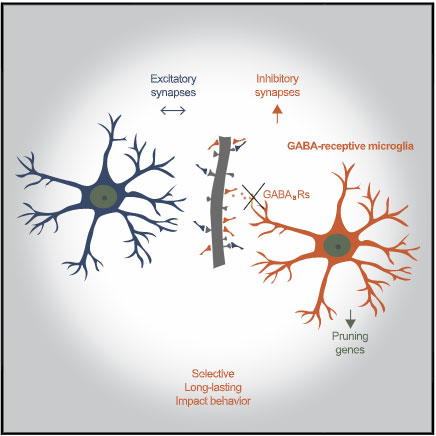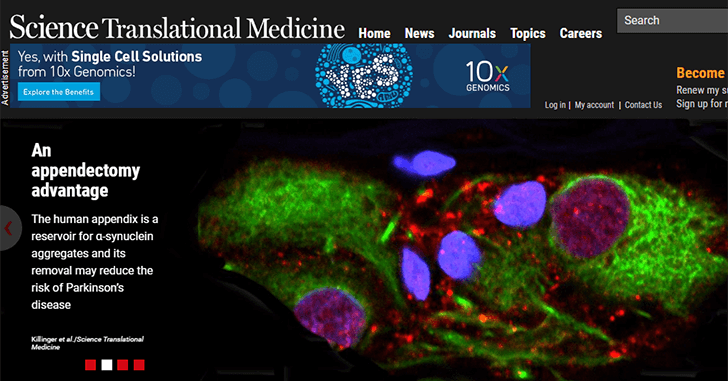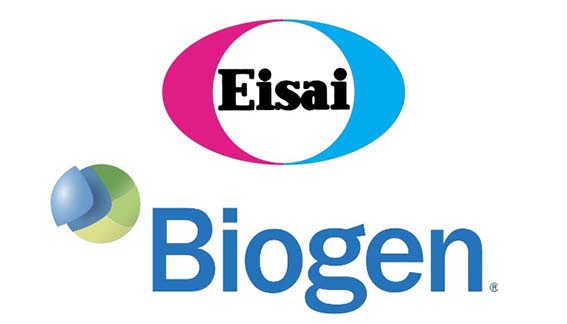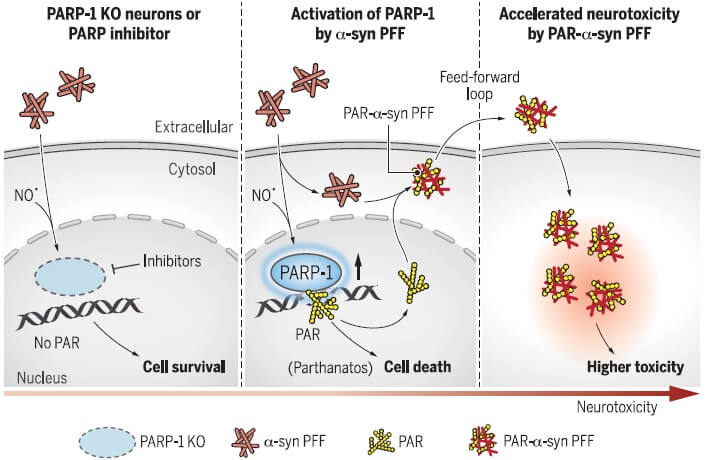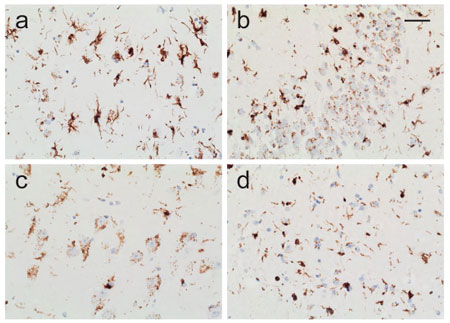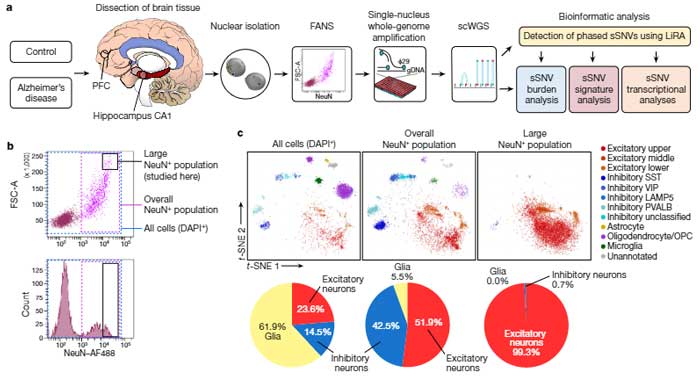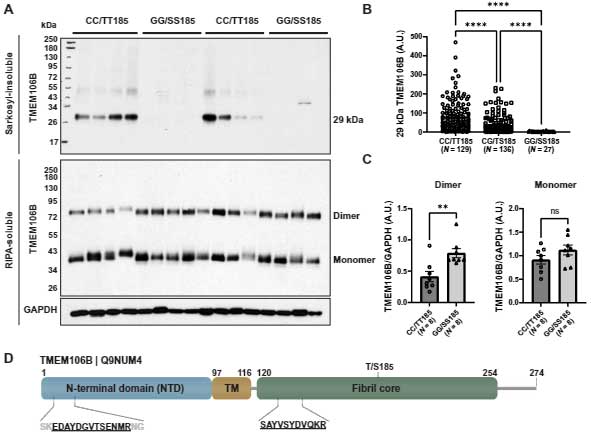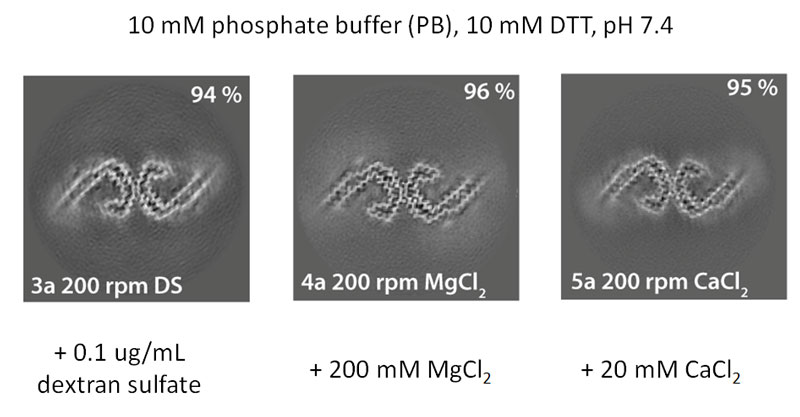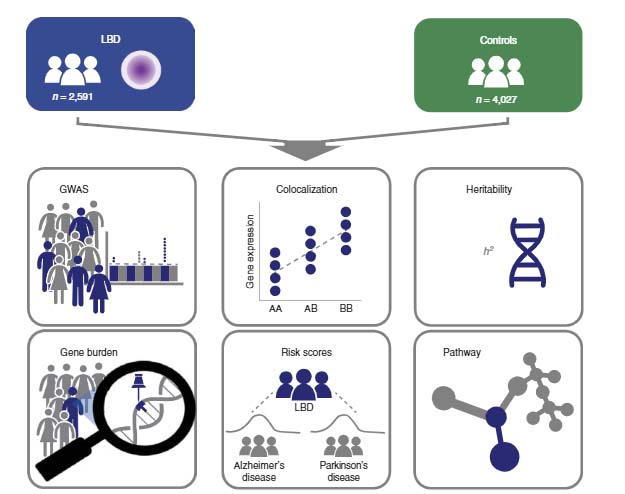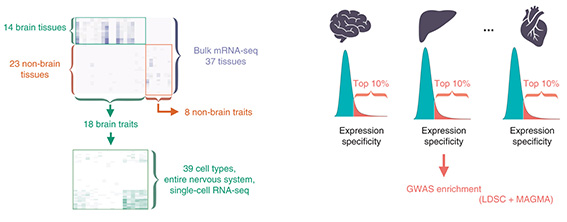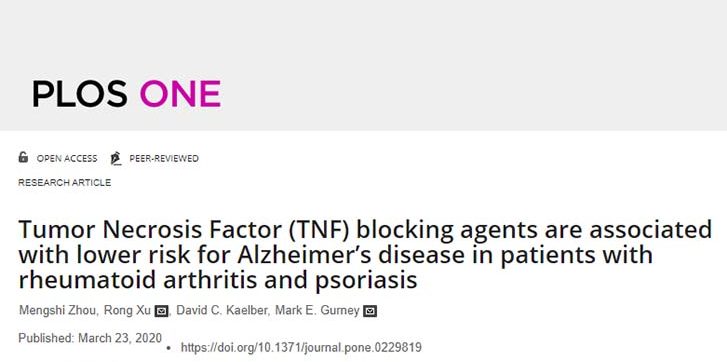
慢性関節リウマチ(rheumatoid arthritis, RA)で、Tumor Necrosis Factor (TNF) 阻害剤(etanercept, adalimumab, infliximab)を服用している5600万人の患者を調べた。あと、methotrexate。 RA自体はADのハイリスク(AOR = 1.37, p<0.0001)だった。
TNF阻害薬を服用していた患者は軒並みADのリスクが下がっていた。
- Etanercept : AOR = 0.34, P <0.0001
- Adalimumab : AOR = 0.28, P <0.0001
- Infliximab : AOR = 0.34, P <0.0001
MethotrexateもADリスクは低下していた(AOR = 0.34, P <0.0001)が、それはTNF阻害薬と併用の服薬歴のある人達が多かった。 性別や人種には有意差がなかった。 以上の結果から、特定の患者に対しては、TNF阻害剤がADの発症を防ぐ可能性が示唆された。 *AOR, Adjusted odds ratio
This large, retrospective case-control study of electronic health records from 56 million unique adult patients examined whether or not treatment with a Tumor Necrosis Factor (TNF) blocking agent is associated with lower risk for Alzheimer’s disease (AD) in patients with rheumatoid arthritis (RA), psoriasis, and other inflammatory diseases which are mediated in part by TNF and for which a TNF blocker is an approved treatment. The analysis compared the diagnosis of AD as an outcome measure in patients receiving at least one prescription for a TNF blocking agent (etanercept, adalimumab, and infliximab) or for methotrexate. Adjusted odds ratios (AORs) were estimated using the Cochran-Mantel-Haenszel (CMH) method and presented with 95% confidence intervals (CIs) and p-values. RA was associated with a higher risk for AD (Adjusted Odds Ratio (AOR) = 2.06, 95% Confidence Interval: (2.02–2.10), P-value
